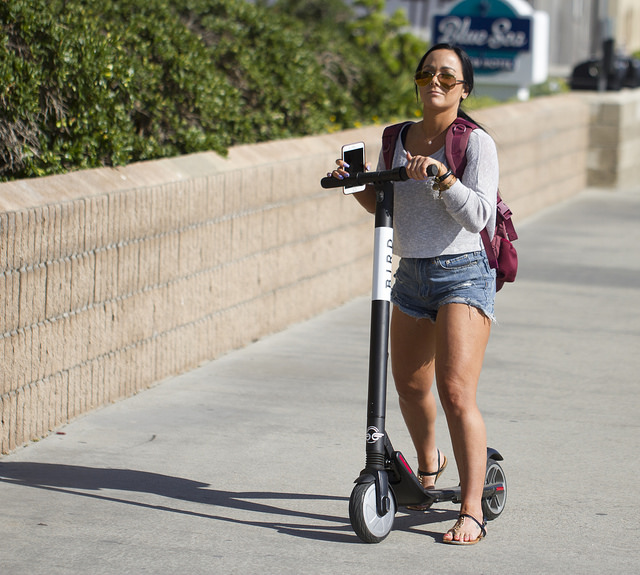Scooters are apparently winning the race to the future of mini-transportation.
New data from Charlotte — which currently has Lime and Bird scooters and several dockless bike companies operating at the same time — shows that the scooters are much more popular. In July, residents took 100,273 trips on e-scooters, compared to 27,453 trips on bikes, the city government reports.
And even more telling: Each e-scooter was rented an average of four times a day compared to .6 rides per day for the dockless bikes, which has roughly double the fleet size.
Also surprising: people are taking the scooters on longer trips than the bikes, with an average e-scooter trip of 1.4 miles vs. 0.74 miles for the bikes, Charlotte's data shows.
E-scooters are "winning the battle" for riders in the city, The Virginian-Pilot concluded.
Charlotte's results are certainly not definitive, nor do they predict the demise of bike share in favor of e-scooters across the country (indeed, New York's Citi Bike has per-bike ridership that dwarfs Charlotte's scooters). But the numbers do offer an excellent window into consumer preference. Charlotte is one of the few cities that has both dockless bikes and dockless e-scooters and the city has been running a pilot with both that requires the companies to turn over ridership data — something we lack almost everywhere else. (Bird announced a new, more generous data policy on Wednesday.)
Many cities are still working out many issues related to scooters — clutter and riding on the sidewalk are among the chief concerns, prompting some governments to boot the scooters entirely — but local leaders, seeing their constituents taking a shine to motorized two-wheel transportation, are beginning to talk about scooter concerns as surmountable.
"There is no reason why my community shouldn't be on the cutting edge of this technology," New York City Council Member Robert Cornegy told my StreetsblogNYC colleague Gersh Kuntzman at a Bird event in largely African-American Bedford-Stuyvesant on Thursday.

Two members of the New York City Council are writing a bill that would legalize e-scooters, plotting a strategy unlike other cities, where companies like Lime and Bird just showed up en masse.
Milwaukee, where Bird had some initial troubles, is talking about the company as a partner, not merely a partner-in-crime. The same is true for Bird and Lime scooters in Columbus, Ohio.
The boom in e-scooter popularity may explain why Lime Bike Chief Programs Officer Scott Kubly recently told Streetsblog that scooters are much more likely to represent the future of transportation than bikes. Some companies, such as Spin, have moved from bikes into focusing on scooters.
The evidence from Charlotte suggests they're onto something — and it doesn't have a seat.






